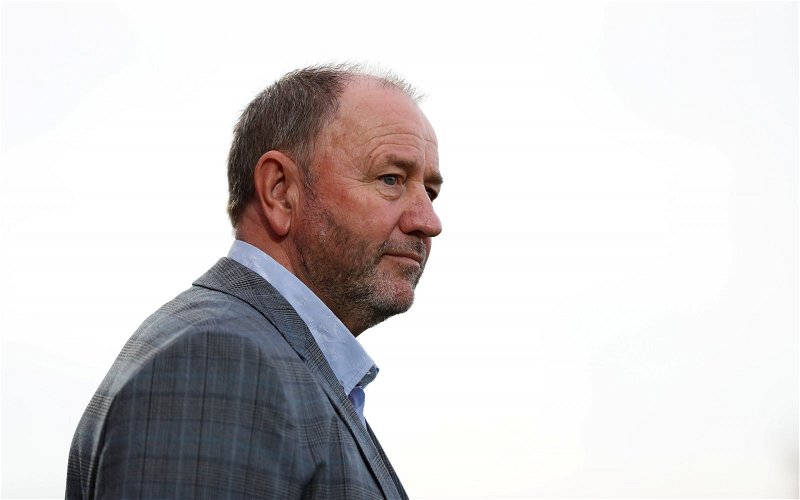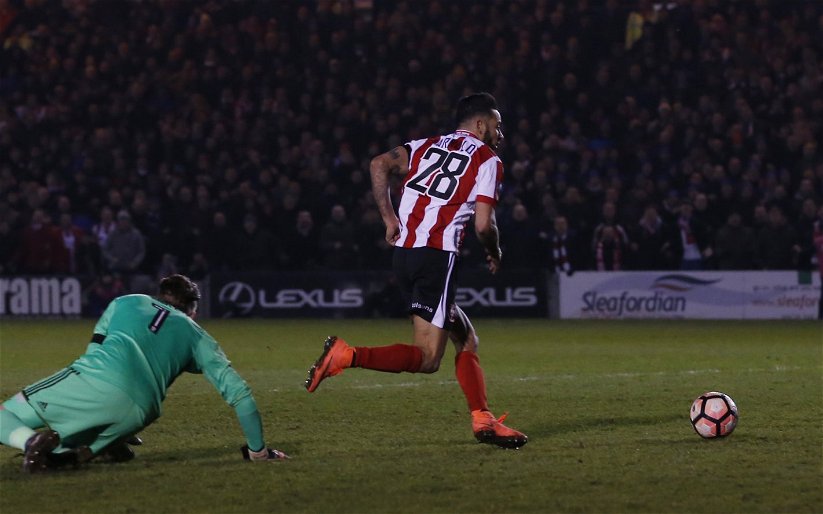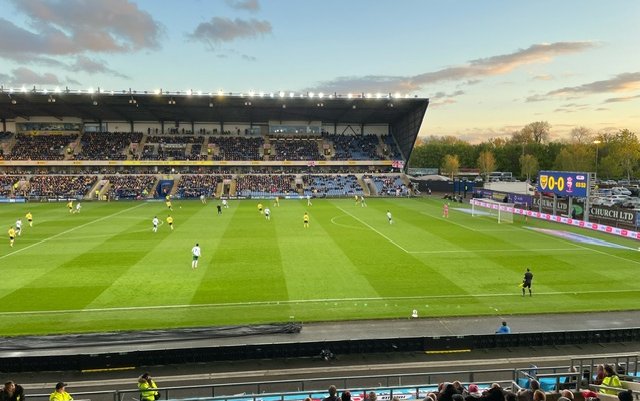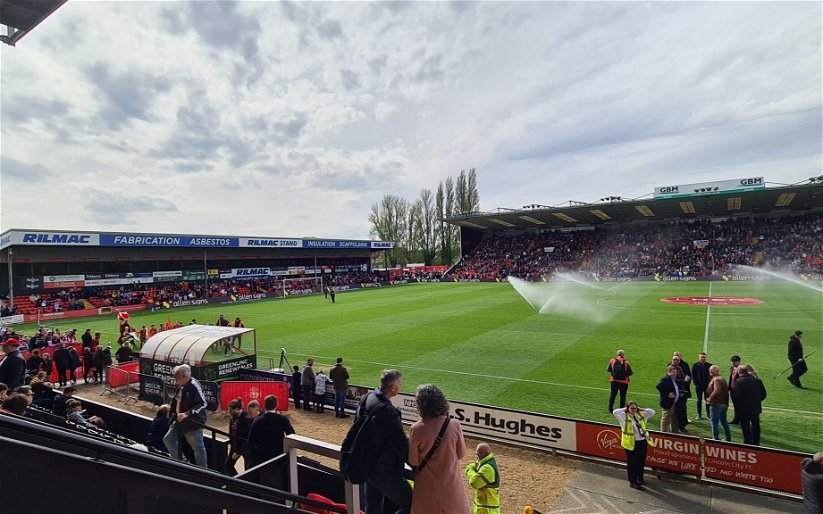In keeping with a number of well-known managers to make their names in the non-league game, Gary Johnson never kicked a ball in anger in the Football League. Despite spells with Watford, Malmo, Brentford and Northampton, he failed to make a single first-class appearance. Perhaps it was destiny which led him to turn to coaching as the next-best thing.
It has been no easy journey. Although he celebrates his 31st anniversary as a football manager this summer, Johnson might have been forgiven for giving up on his coaching ambitions a long time ago. Despite setting up a successful football academy, two inauspicious seasons in charge of Newmarket Town in the Eastern Counties League saw him suspend his managerial career in favour of a minor coaching role at Cambridge in 1988. Two years later he became assistant manager to John Beck as Cambridge roared up the Football League, also upsetting the form book to reach the FA Cup quarter-finals two seasons running. After a short spell as caretaker when Beck departed in October 1992, Johnson finally took over on a permanent basis at the end of that season when Beck’s replacement Ian Atkins failed to keep the club in the second tier. Unfortunately, his second stab at management also ended in disappointment after two seasons, with Cambridge heading for relegation back to the basement in rather unfortunate circumstances: due to the reorganisation of the Football League in 1995, the side finishing fifth from bottom in the third tier was to be relegated, and Cambridge was that side. Johnson was removed from his position with six games to go, but his replacement Tommy Taylor was unable to keep the club up either.
Johnson’s appointment by Kettering marked an important point in the Poppies’ history, as they moved to full-time football that summer. That experiment ended eighteen months later as Johnson was dismissed after two poor seasons, and a return to part-time followed at Rockingham Road. With a disappointing record as a manager, Johnson reverted to being an academy coach, this time under Graham Taylor at Watford. Therefore it came as a major surprise when he was named as the new manager of Latvia in September 1999, where he remained until the summer of 2001.
Having enhanced his reputation through some reasonable results with Latvia, Johnson returned to England and was named the new manager of ambitious Conference side Yeovil Town in June 2001. Big things were expected at Huish Park, having narrowly missed promotion to the Football League in May, and there were doubts about Johnson’s ability to deliver what was required. However, Johnson delivered the FA Trophy in his first season and took the Glovers to the Conference title in his second; his reputation as a non-league specialist had been created. That reputation was extended further just two seasons later as Yeovil took the League Two championship after narrowly missing the playoffs in his first season. After two titles in three seasons, it was inevitable that bigger clubs would come calling, and Johnson headed up the A37 to Bristol City a few weeks into the 2005-06 season.
The magic touch continued at Ashton Gate, securing promotion to the Championship in just his second season, and almost reaching the Premier League at the first attempt in 2008: a single goal defeat to Hull City in the play-off final ended that particular dream. The momentum was not to be maintained, however, and two mediocre seasons were to follow before Johnson departed for Championship strugglers Peterborough in 2010. His spell at London Road was an unhappy one, lasting little more than nine months, and a subsequent spell at Northampton was destined to end after just eight.
It was time to repair that reputation again, and he welcomed the opportunity to return to Yeovil in January 2012. Lightning struck for the second time at Huish Park in his first full season as he led the tiny club from Somerset to the Championship for the first time in its history. This time, it was a successful visit to Wembley as his side beat Brentford 2-1. Championship status lasted one solitary season, and the immediate return to League One was followed by Johnson’s dismissal in February as Yeovil headed for a second successive relegation.
Less than two months later, Johnson was appointed manager of League Two strugglers Cheltenham in a last-ditch attempt to keep them in the Football League. It failed, but relegation was swiftly forgotten as the Robins strolled to the National League title in 2015-16 by a twelve-point margin. The title made Johnson only the second manager to win two Conference championships, the first being John Still with Dagenham & Redbridge in 2007 and Luton in 2014.
As Cheltenham headed back to the Football League, it gave Johnson the rollercoaster record of five promotions and three relegations in fifteen seasons, although two of those relegations came early in his tenure. Despite their dominance in the National League, Cheltenham’s first season back in the Football League saw them avoid relegation by just four points. Given the nature of Gary Johnson’s managerial career, who would have expected anything less? Still recovering from a successful triple heart bypass in March 2017 (and a rare disorder which attacked his nervous system ten days after surgery), Johnson signed a new two-year contract with Cheltenham in May. The 2017-18 season was also a struggle, with the side relying heavily on 23 goals from summer signing Mo Eisa to keep them in the Football League. The margin of safety this time was five points, but still too close for comfort.
After two finishes dangerously close to the relegation trapdoor, Johnson will be trying to move the club forward this season. On average crowds of barely 3,000, his budget will always be among the lowest in the division, but that is what Gary Johnson is good at. At nearly 63, this season may prove to be his last as a Football League manager. Does he have one last surprise for us?
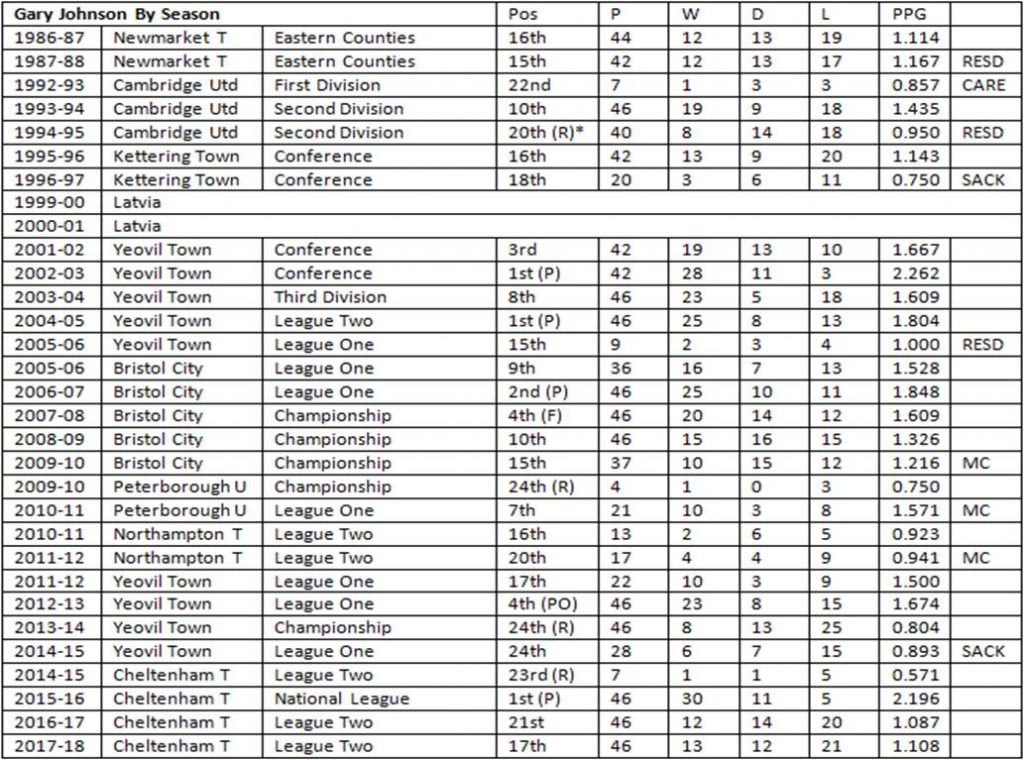
Key:
P = Promoted; R = Relegated; SF = Lost in play-off semi-final; F = Lost in play-off final; PO = Won play-off final; D = Demoted.
Figures are league games only; cup matches and playoffs are not included.
League position shown is either the position at the end of the season or the position at the time of departure
* Cambridge relegated in 1994-95 despite finishing 5th from bottom: league restructuring
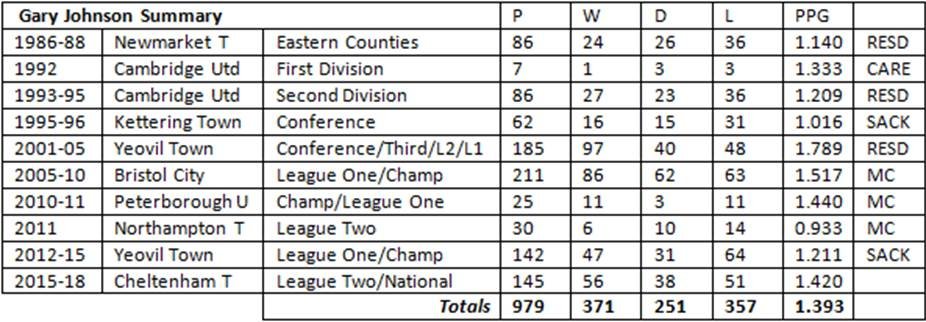
Writer: Scotimp
Who Are The League Two Managers? No.4: Gary Johnson (@CTFCofficial):https://t.co/MMF5cKuc7n#Cheltenham #CTFC #EFL
— Vital Lincoln City (@VitalLincoln) June 30, 2018
https://www.facebook.com/VitalLincolnCity/posts/1742166002486304
